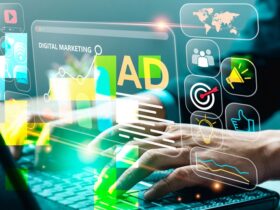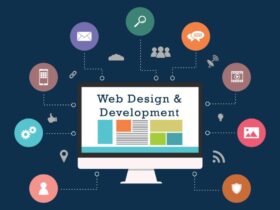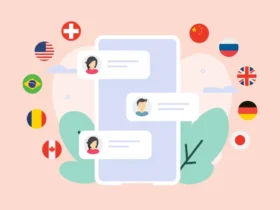Smartphones and mobile technology have already revolutionized communication and consumer behavior. Increasingly, people worldwide rely on their mobile devices for various tasks and transactions. The introduction of the 5G wireless communication network is poised to advance this trend even further. By enhancing the way we communicate and transact, 5G promises economic growth across multiple industry sectors, including the insurance industry. So, now let us see How 5G Networks Will Transform the Insurance Industry along with Smart LTE RF drive test tools in telecom & Cellular RF drive test equipment and Smart Mobile Network Monitoring Tools, Mobile Network Drive Test Tools, Mobile Network Testing Tools in detail.
5G and the Insurance Industry
5G technology will significantly improve risk assessment and prevention in various insurance sectors. Medical examinations, diagnoses, and treatments will become faster and more efficient. The property and car insurance sectors will also benefit from more advanced coverage and protection options.
The speed of data transfer with 5G is expected to be up to ten times faster than current networks. Beyond speed, 5G can handle and store much larger amounts of data. Tasks that previously required supercomputers will be achievable with small devices, anywhere and anytime, without delays. This means that new digital services, currently nonexistent, will emerge in international markets.
New 5G Services
5G-enabled portable devices (wearables) will measure various health metrics, from blood sugar levels to heartbeats, collecting vast amounts of data in real-time. This data can be sent directly to medical institutions, improving the efficiency of treatments, whether interventions or medications, by providing scientists with substantial evidence and case studies. These wearables will help individuals monitor and manage their health more effectively.
Additionally, 5G’s ultra-fast speeds will enable quick loading of patient histories, allowing doctors to provide immediate assistance, especially in emergencies. For real-time or critical communications, 5G must ensure high service efficiency, data rates, and coverage. Medical files should be downloaded seamlessly, and content should stream without interruptions.
If everything proceeds as expected, 5G could disrupt various industries, creating 22 million jobs worldwide over the next decade. It is projected to generate $3.5 trillion in direct economic activity and fuel sustainable long-term growth globally.
5G in Health Insurance
In the health insurance sector, monitoring or examining a person’s health via wearables will be feasible. Insurance companies will quickly collect and process vast amounts of data, allowing them to interact with the insured or prospective insured person more efficiently. This could lead to proposing new contracts, improving existing coverage, offering discounts, or checking claims. Insurers are already preparing to provide premium discounts to those who lead healthy lifestyles and can prove it through technology.
Furthermore, if someone needs urgent surgery while far from home, AI robots in local hospitals could perform the operation, following instructions from surgeons via video call. As insurers aim to offer comprehensive wellness and support services, 5G could become a valuable ally.
5G in Property Insurance
The property management industry will also experience significant changes. Currently, smartphones can communicate with various smart home appliances. However, 5G will enable direct communication between these devices, leading to the 5G Internet of Things (IoT).
For instance, a refrigerator could notify the oven that the meat has thawed, prompting the oven to preheat. More importantly, the oven could alert the owner if it is left on, allowing remote control. In the event of a fire, it could alert the insurer and collect valuable information, such as photos, to facilitate the compensation process. The more information insurers have, the better they can assess and prevent risks. The 5G IoT will help reduce costs and improve risk management.
5G in Commercial Insurance
In commercial insurance, cargo transportation can be monitored in real-time, and drones will have extended range and capabilities. Factories will transform into “smart factories,” where AI will predict, diagnose, and repair issues, enhancing risk assessment and prevention.
5G in Auto/Vehicle Insurance
With the introduction of autonomous electric vehicles, the automotive industry will also undergo significant changes. Premiums may decrease as these vehicles are considered safer. They will communicate with each other to avoid accidents and use up-to-date road maps to alert drivers about traffic conditions.
Transformation of Insurance Companies with 5G
5G will impact all industries, from construction to distribution and services, with the aim of improving living conditions worldwide. Crucially, even the most time-consuming processes will become much faster, making companies more flexible. The continuous collection of valuable data will enable companies to adjust their products and services to better meet client needs.
Adapting to the 5G Era
Companies should view the arrival of 5G not as a challenge to fear but as an opportunity to adapt to a new reality. By leveraging the latest technology, they can expand the services they offer, becoming valuable allies in their customers’ daily lives.
Most insurance companies are already moving in this direction, recognizing the need to embrace these changes. Those that fail to adapt may struggle to keep up with market demands. The future holds significant promise for those prepared to harness the power of 5G technology. Also, read similar articles from here.











